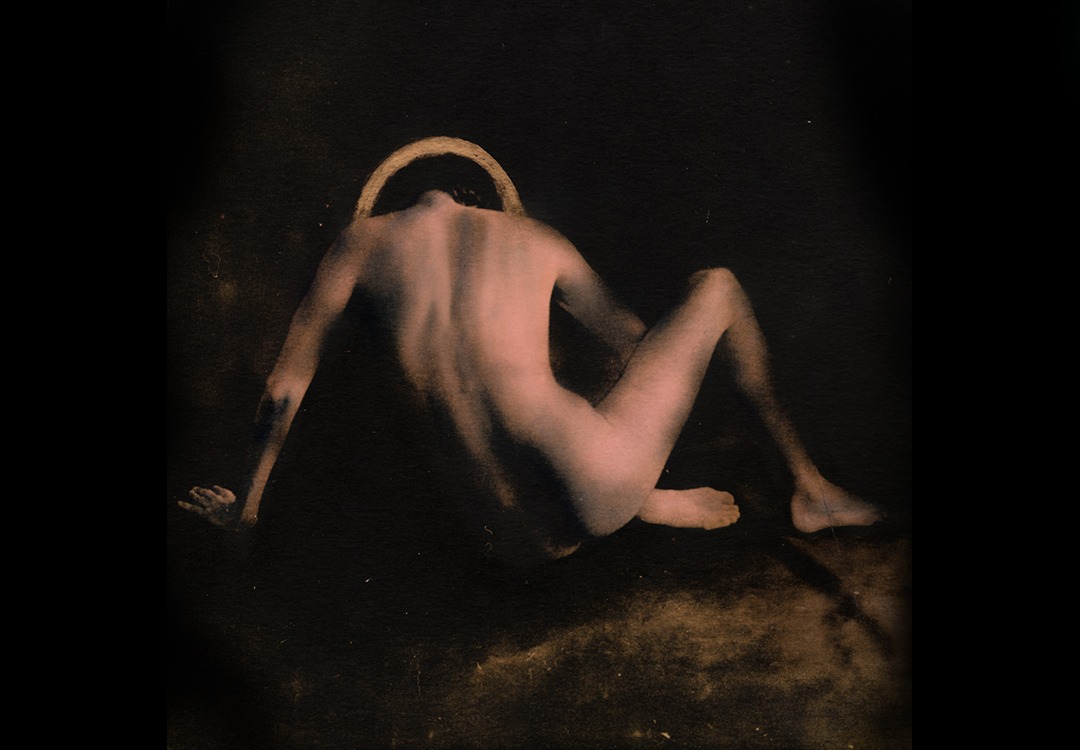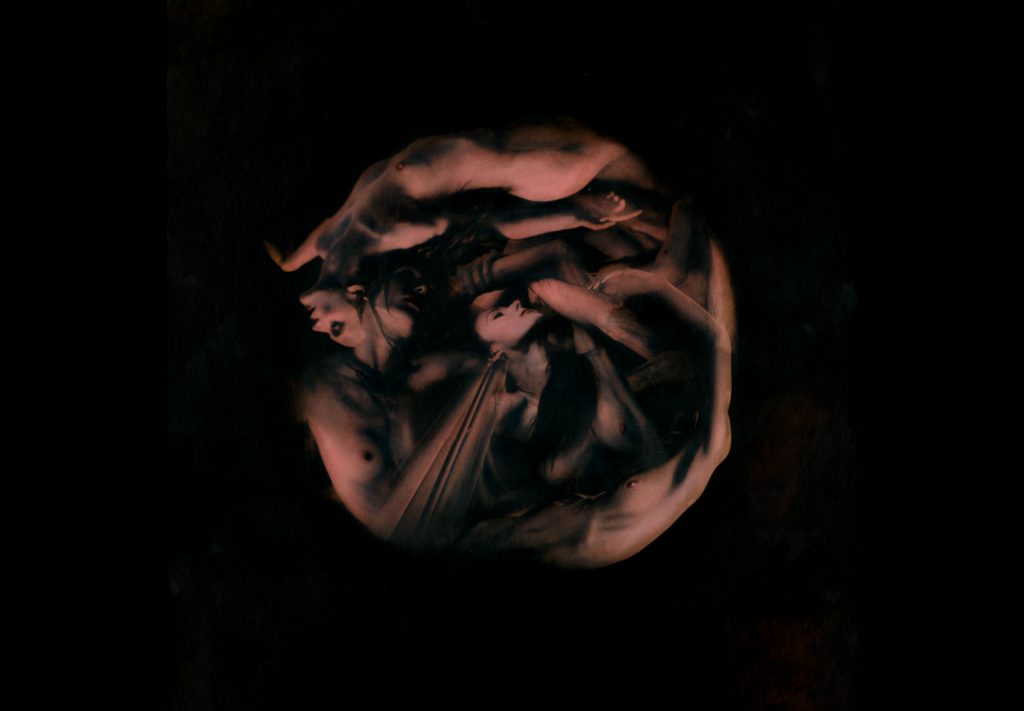A Timeless Photographic Vision
Ellen Rogers got her first camera at age 16,… a Yashica Mat. And hence started a journey that continues to this day. She has already been featured in magazines such as i-D, Vice, Tank, Dazed And Confused, Vogue Italia and Harper’s Bazaar China. Her photographic inclusion in books, such as Alice Temperley’s “English Myths and Legends“, imparts a certain archaic, yet timeless photographic vision. Her new project, ‘Gnosis’, is a continued realization of that journey. While invoking similarities to a Sarah Moon, the writings and work are all Ellen Rogers.
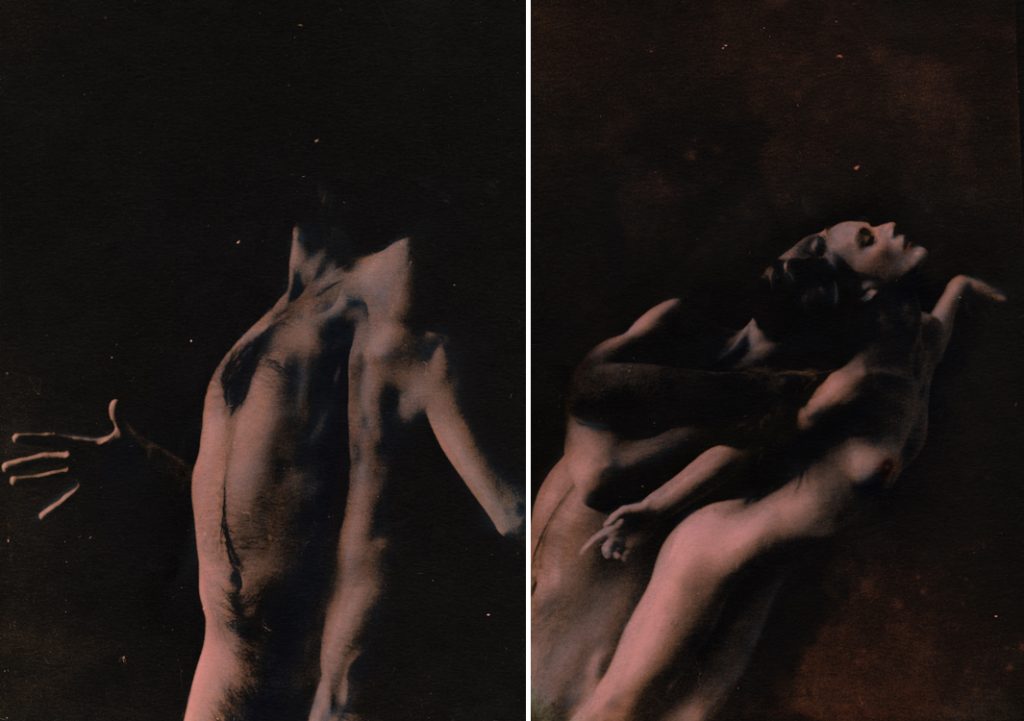
The Interview
Why do you prefer to shoot on film? Advantages, disadvantages?
I’m glad you asked me this as I’ve been asking myself repeatedly for years, and I believe my answers have always been flimsy; it’s both beautiful and… messy. But that’s not really why. I didn’t until recently know why. I had aesthetic attachments, but that isn’t, and shouldn’t, be enough. Content is more important than form. I began reasoning with the idea of ‘slow fashion’ a few years back; wherein some fashion designers attempt to slow down the throw-away and disposable society we live in by injecting a deep sense of craft. I do think this in part plays a reason why I’ve unconsciously stuck to this. But I also think there is perhaps a darker reason why some people, (me particularly), live in the “dusty archives” of photography. Culture is not moving forward in the way it once did, and when I look to ideas of aesthetic gravitas I find myself no longer looking to the future, but to the past. I realized recently that my work took this nostalgic turn around 2008, and I think that it might not be a coincidence that 2008 was the year of the banking bailouts and financial collapse. That became the aesthetic “face of collapse” for my work. My work took on a deep melancholia I hadn’t seen in my daily, cheerful life. But my unconscious saw it. My work, and the work of peers like Susu Laroche, Rebecca Cairns,…and others,… began working simultaneously during that period. I now believe they had the same hope and despair attributed to modern culture, but I believe we were trying very hard to rewrite the future by altering the past. And on a positive note, it also serves as a connection to an alienated people. People who love to work and love to use their hands, but don’t have a space that globally speaks to that. The artisan is in short demand and their role is diminished socially. Art is now undervalued and it pushes us to the reaches of a nostalgia where craftsmanship was once revered. Humanity wants to be needed and valued. To merely write us off as luddites negates the role that we seek to fill, as crafts people. Sometimes I see my subjects as lost, or at least as lost as I am. Lost in the present day disorienting ambiguity. A static place that would once have been a hopeful future. I could go further and claim my work is perhaps a mourning of the future. A spectre haunting… I think this is why I shoot film and perhaps it’s a disadvantage. However, I love it and refuse to think my stubbornness is all that healthy. That said, it’s also beautiful and messy and all the things that reinforce that love. It’s a “painting with light”, and all those other worn out photographic phrases. Worn and lived in, loved to death!

Do certain clients hire you specifically because you shoot on film?
Almost certainly, my role commercially is usually exactly what you might expect it is. I often serve as the anachronistic, artistic, painterly, dark alternative for a weight of tradition in the campaign. I also spend a great deal of time and care in what I do, and I very much hope it shows. I love working, and I love doing what I do. Short of spending some much needed time out of the darkroom, I love how satisfying the process is and I’m glad clients can see value in this slow, but methodical practice.
Do you on occasion employ digital? Like if a well paying client asks? Or you have a bossy Art Director who must look over your shoulder?
No not ever. My boyfriend has a digital camera, and I use it these days to photograph what I’m actually doing. I don’t think it’s very much in the interest of clients to ask an analogue photographer to use digital, as there are a lot of qualified digital photographers out there. Ah, bossy art directors,… they are great! I love strong minded creatives willing to argue for their voice.
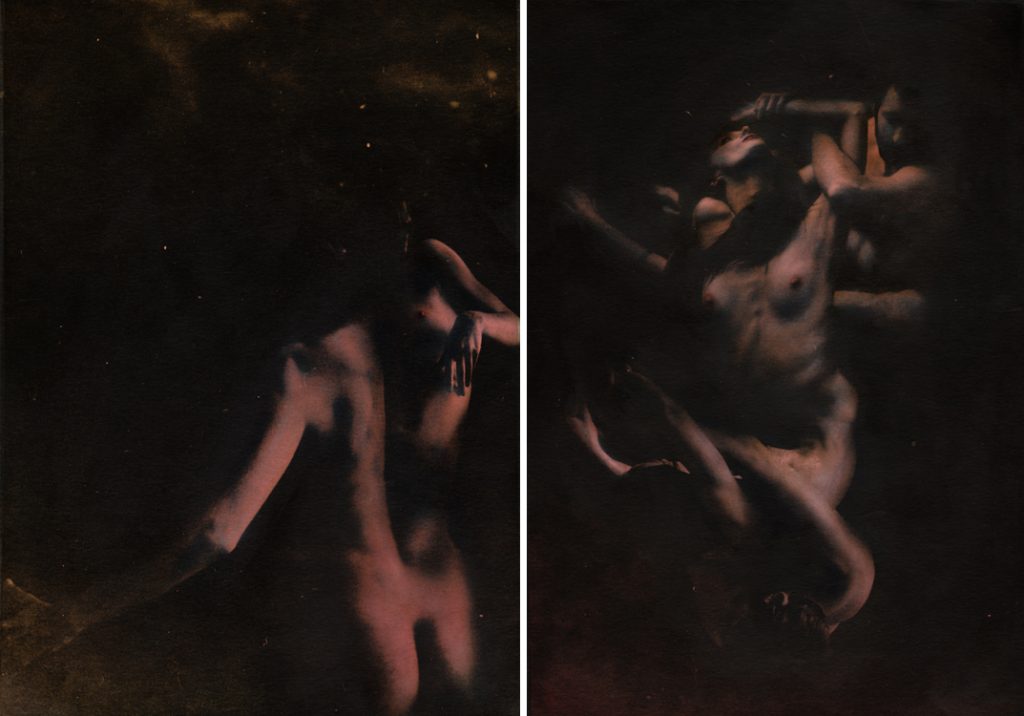
Darkroom or digital printing?
I am in the darkroom every opportunity I get. While it isn’t as much as I’d like lately, it’s still several times a month. However, the prints in my store are archival C-Type prints.
Do you already have a theme in mind when you shoot? Or is your shooting process more fluid?
Yeah, usually, I have something strong even if it’s a feeling that needs some sort of immediate articulation. Strangely, I find that when I practice writing, my photography improves too. A clear vision. So, I’ve been writing more and more and the ideas become more realized and rounded. On occasion I’ll have a drawing or set to go by, but mostly it’s a strong emotion. I suppose what I’m really describing is the creative process itself – of synthesizing of emotion to aesthetic.
Do you process your own film?
Yes, I do, and I love to do so. Since living in London I’ve had to send it off for processing and it feels horribly like cheating. I feel I’m robbed of my ritual. Film processing is such an ingrained part of my life. If anything is fiddly or tricky in my daily life I close my eyes to do it, as I’ve become accustomed to being more dexterous in the dark.
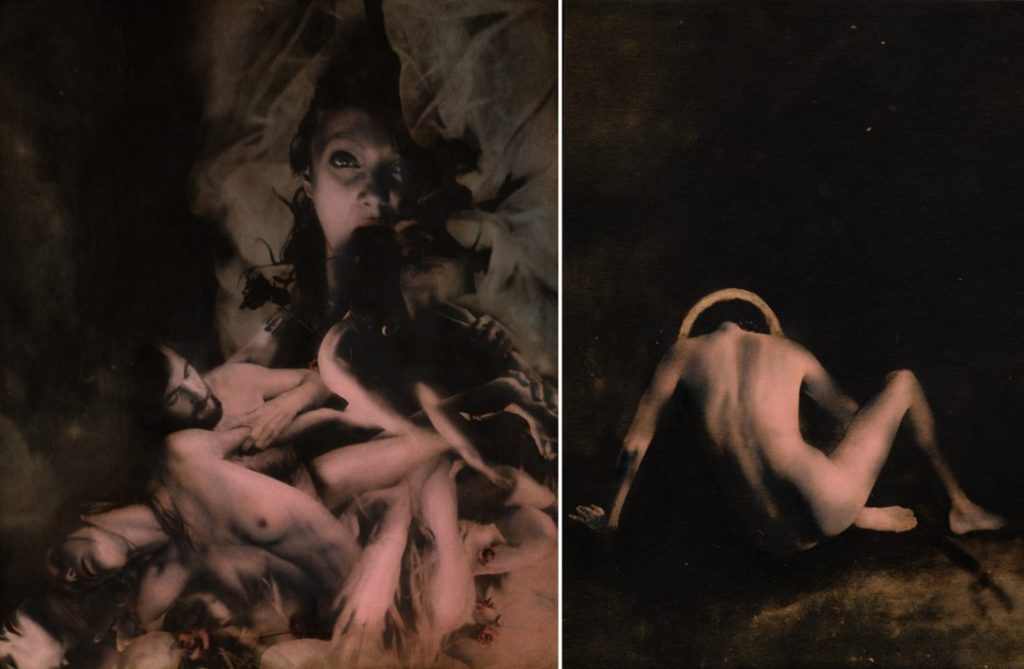
Are you a hybrid shooter, (film to scan), or are your prints darkroom only?
No, it’s all darkroom. Except for C41. For the most part that’s scanned. It’s an expensive game really! Curious that it’s such a hardwired need on my part!?
Do you ever use Photoshop/Lightroom, or is the darkroom the sole domain of your vision?
I don’t use Photoshop but I do use Lightroom, I think it’s great for digitally archiving images and changing their size and correcting the image to look as much like the original from the bias the scanner gave it. Which is usually some unsightly green,… if you have an Epson. 🙂
Your latest project is quite beautiful. Are there more projects in the making? Shows?
Thank you! I will be continuing with my ‘Gnosis’ project, and my ambition is to write much more about the political landscape of photography. Having been a lecturer at various universities for some time now I have seen the massive disadvantages of not looking at photography theoretically and only looking at and analyzing the visual aspects. It is also a massive disadvantage when working for a client, too. I for one will be thinking more and more about why people use film too, why we often focus on individualist emotion in photography rather than social or collective thoughts and what the connotations of certain fashion images are in a broader sense.
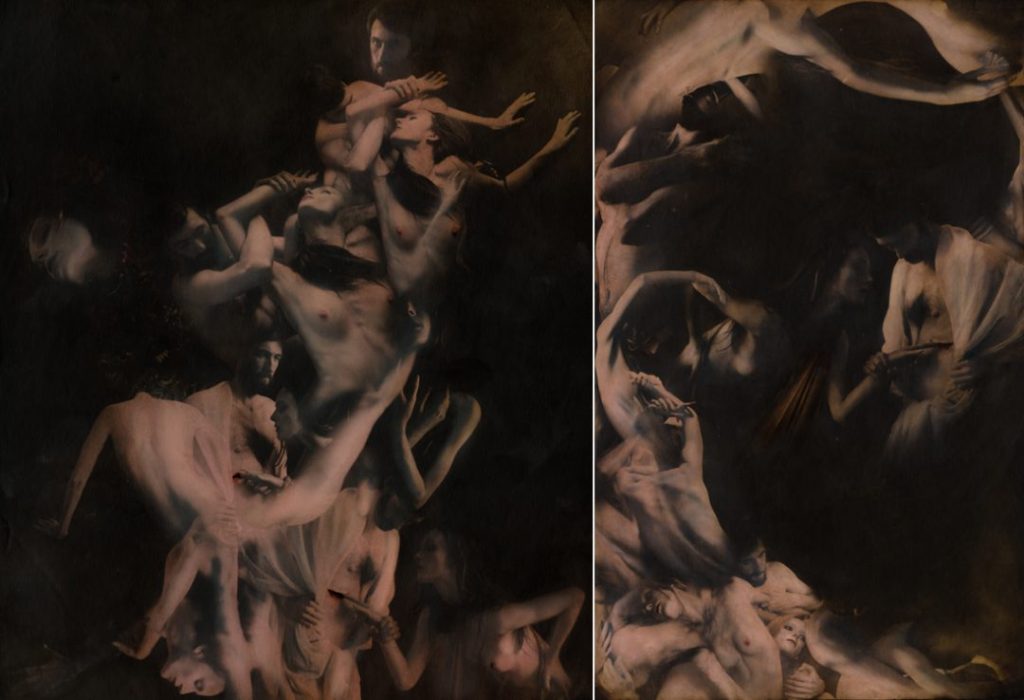
Any inspiring words for fellow film photographers or people who would like to jump onto the film bandwagon?
Experiment!!! A true creative is a person who is willing to fail. If a ground is too easily walked, it might not be your own… and perhaps consider that the term all-analogue (a term I adapted in 2008) might not be the most freeing of terms (coming from a perhaps jaded and boxed photographer 😉 )
Culturally, and personally, it is very important to know why you are doing what you are doing. Art is culturally, historically and progressively important; if you are making art, you are making history. Ask yourself questions all the time; what is this image saying? Why am I making it? If it’s expression, what does it express? If it’s automatic, what is your unconscious letting you know in a broader cultural sense?
See More…
To see more of Ellen Rogers, and her works and writings, visit her website link below. Or view her other work.
Website

